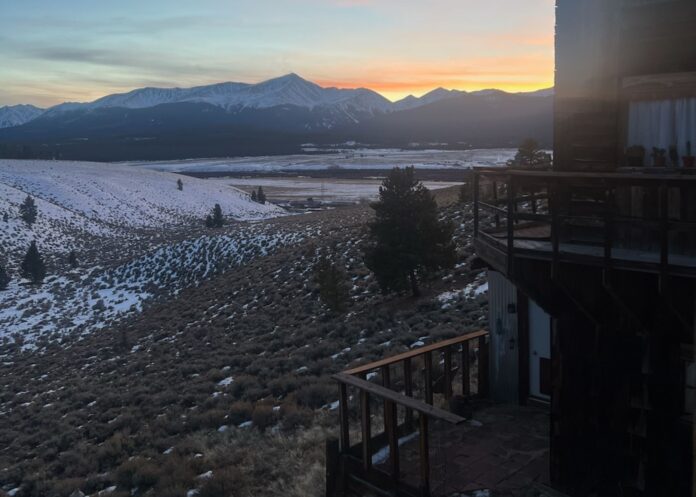
Colorado lawmakers are working on an effort to slightly pry open one of the insurance industry’s black boxes: its risk models.
House Bill 25-1182, which has been amended several times following discussions between its sponsors and industry stakeholders, is almost on its way to the governor’s desk. The bill passed out of the Senate on April 4, and the House only has to approve the newly amended version to send it to Gov. Jared Polis’ desk.
The bill is backed by a bipartisan group of sponsors, with Democratic Reps. Brianna Titone and Kyle Brown the primary movers on the House side and Democratic Sen. Lisa Cutter and Republican Sen. Cleave Simpson on the Senate side.
Titone said the bill came about during the 2024 special legislative session from conversations she was having around property tax, government funding and fire protection districts. One piece of information she learned from fire chiefs in those conversations was about fire scores.
“This was the first time I had ever heard of a wildfire score. I hadn’t heard that this was even a thing,” Titone said. “So he said, ‘Why aren’t we doing something to get property insurance down? Because that would really help save people a lot of money. Instead of messing around with all these little bits and pieces of property tax relief, why don’t we find real ways to save people money?’”
“This bill you have in front of you now is about promoting transparency and accountability in the wildfire risk scoring and the models, empowering Coloradans to take more informed decisions about their mitigation,” Titone said. “The bill requires insurers to provide information to policyholders and the state about the wildfire models and scores.”
Titone noted that these wildfire risk scores were increasingly being used to determine whether an insurer would cover a property, and if so, how much they would cover it for. In addition to not knowing how the overall risk score was calculated, Titone said that the state also doesn’t know how the insurance modelers incorporate risk mitigation done by individuals, communities and the state.
Along with more transparency on the risk scores, Brown said that the bill also gives Colorado residents a way to appeal and interface with insurance companies more directly as it relates to their risk scores. “We need to be sure that people have the ability to fix and update the information that’s required in the bill to make sure that the models are accurate,” Brown said.
Representatives from a number of municipalities, including Counties & Commissioners Acting Together, all appeared to give their support to the bill. The state’s insurance commissioner, Michael Conway, also testified in support of the bill.
Conway told the committee that the bill ensures that the work that homeowners and communities do to mitigate fire risk is represented in the insurance rates that they’re charged.
“This legislation does three basic but vitally important things,” Conway said. “The bill requires insurers to ensure their models include property-specific and community-level mitigation activities. The bill provides transparency to consumers about the mitigation discounts available. And finally, the bill gives consumers information about their wildfire risk scores, what they mean and the opportunity to appeal them.
While Titone noted in the bill’s first committee hearing that the bill faced no opposition, the sponsors did bring several amendments to the bill to address the concerns of insurance companies.
“In particular, we added definitions to community-level mitigation of specific mitigation actions. We removed the requirement for insurers to incorporate the state-level mitigation of their efforts in their risk models,” Brown said. “Our amendments also provided an option for insurers with respect to the models. Instead of incorporating property-specific mitigation actions into their models, they must provide discounts to policy holders for such mitigation actions.”
Titone added that they also removed reinsurers from the requirement of the bill, pushed the effective date back to July 1, 2026, and added a requirement that the models be treated as confidential by the insurance commissioner. “We want to make sure that any proprietary data or methodology that they use will not be open to the public,” Titone said.
Further amendments came in the form of a reduction of commercial liability to only properties that have residential housing and multifamily residential housing and clarification about data use.

